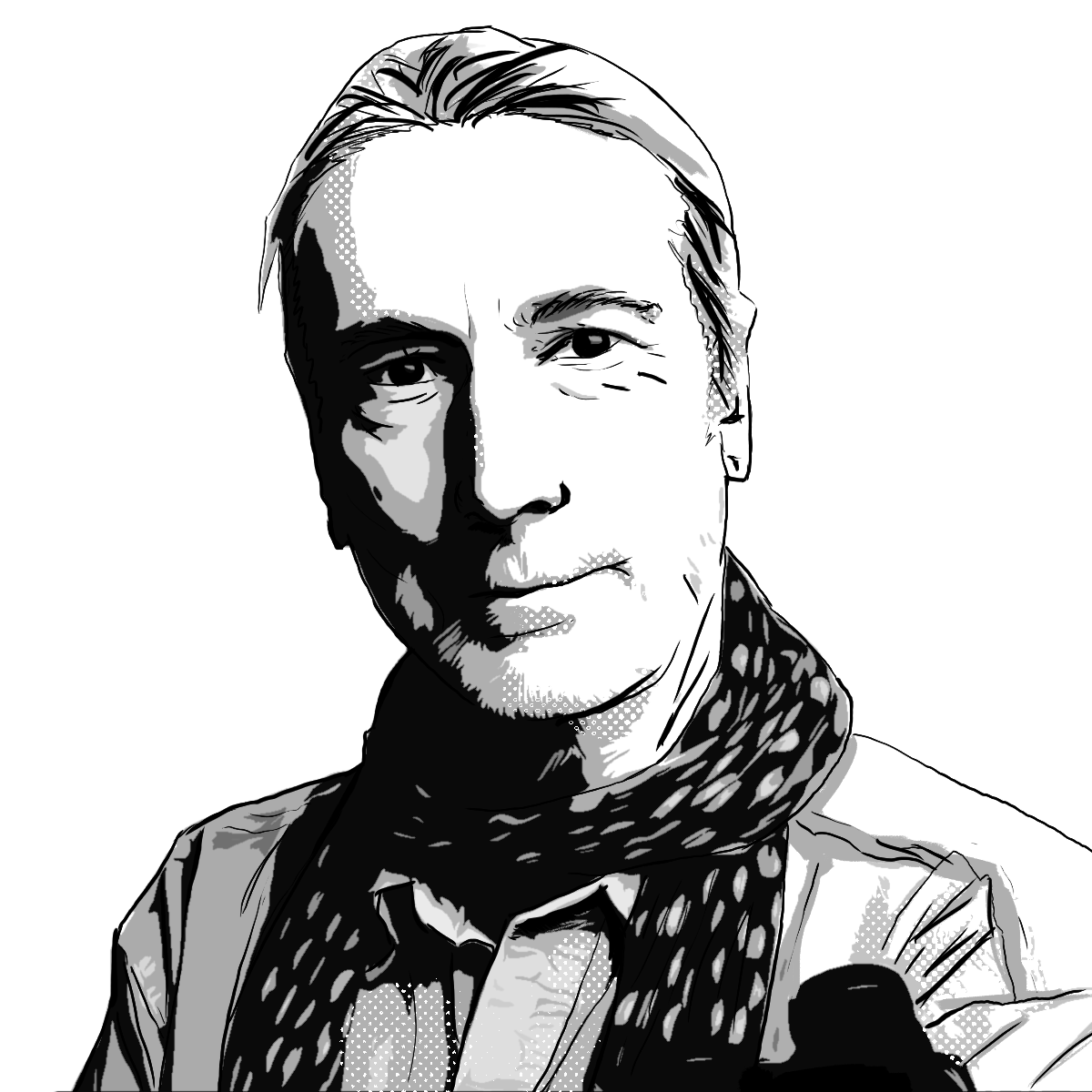We Europeans will never forgive America for its failure to be the perfect society. That was its job, and it’s let us down badly. We have had to live with our own homegrown imperfections for generations: in more recent centuries we’ve been forced to come to terms with the imperfections of the New World as well.
We still sometimes call it that. It’s always been there of course: but to Europe it was once enthrallingly new. The idea is enshrined in science: we live in what biologists call the Palaearctic region; on the other side of the Atlantic those at the same latitude live the Nearctic. America is still defined by its newness.
We have always lived with the idea of a perfect place: the paradise that was lost and the paradise that is yet to come. Western society was founded on the notion that there is an ideal state from which we have fallen, and an ideal state to which we all aspire.
But with the discovery – as Europeans understood it – of America, there was a new and thrilling possibility. It meant that paradise was available right now. Not in the past and not in the deathly and hallowed future, but right now. And you could get there not by dying but by crossing the ocean.
Christopher Columbus travelled west not to prove that the world was round nor to find or found an ideal society. He was looking for a shortcut to the spices and riches of Asia. But after his third voyage of 1498 he was writing to his patrons, King Ferdinand and Queen Isabella of Spain about the apparently ideal life lived by the Taíno people of Hispaniola.
Sir Thomas More wrote Utopia in 1516 and placed his imaginary island in the New World. It has an ideal society: no private property, no locks, dignity of labour, male and female equality, universal love of learning. Utopia meant “no-place”, from the Greek, but is now understood as “perfect place”.
John Donne took a more robust idea of the New World:
O my America! my new found land,
My kingdom safest when with one man mann’d,
My mine of precious stone, my empirie,
How blest am in this discovering thee!
The idea of the new start is forever intoxicating. The New World offered humanity the chance to throw a double-six and start again: jettisoning all the bad things of the old society. And what could possibly go wrong?
Shakespeare looks at this notion in the Tempest: Prospero has taken over an unnamed island and enslaved the earthy Caliban and Ariel, a figure of pure light. But Shakespeare is always subtle. Miranda, Prospero’s daughter, exclaims: “O brave new world that has such people in’t!”
But she’s actually encountering the arriving Europeans: a world that’s new only to her. The Tempest is not about new starts but reconciliation with past troubles.
Suggested Reading


Donald Trump, the real-life Captain Ahab
The myth that North America was entirely founded by utopian idealists still persists: and certainly there were many attempts to establish a new order in the New World. The Pilgrim Fathers (and presumably Mothers) reached America in 1620: separatists and refuseniks with non-conforming religious views.
But the usual reason for those pioneering Atlantic journeys was power and money: to find mountains of gold and other riches, with the colonial powers competing for dominance. That didn’t prevent further attempts to establish Utopias in a real place and time: the Shakers, the Oneida Community and the transcendentalists of Brook Farm among many others.
William Blake saw America as a blessed second chance for all humanity. His sunflower follows the path of the sun towards the west:
Seeking after the sweet golden clime
Where the traveller’s journey is done.
His daughters of Albion look to America as a place where women can be free of oppression and take control of their own sexuality:
I’ll lie beside thee on a bank, and view their wanton play
In lovely copulation, bliss on bliss, with Theotormon…
Voltaire’s Candide (subtitled l’Optimisme) is a young man who believes that all’s for the best in the best of all possible worlds. He sets off on a voyage full of troubles and horrors, reaching the New World where he finds new trials and new tribulations. The book is about the illusion of hope. It concludes with the maxim il faut cultiver notre jardin; we must cultivate our garden. That is to say (perhaps) that we must all do what we can without fooling ourselves or others.
Lemuel Gulliver visits a series of New Worlds in Jonathan Swift’s Gulliver’s Travels. In Lilliput, where he’s a giant, he is overwhelmed by the pettiness of the little people he lives with. In Brobdingnag, where he’s a midget, his own pettiness is made clear.
He boasts about European skills in making and deploying weapons of war and the King tells him, in a sentence that echoes across the centuries: “I cannot but conclude the bulk of your natives to be the most pernicious race of little odious vermin that nature ever suffered to crawl upon the surface of the earth.”
His last voyage is to the land of Houyhnhnms, the beautiful talking horses who have no word for lie in their language and can only express the idea in the periphrastic phrase “He said the thing which is not”. But they must live alongside the frightful human-like Yahoos.
Here is an ideal society. By the time Gulliver leaves he can bear his own kind no longer. Every human is now a Yahoo, even the kindly ship captain Pedro de Mendez, who rescues him. Gulliver becomes a recluse, preferring the company of the horses in his stable to that of humans.
We are so near to perfection, it seems, and yet perfection always eludes us. Even if it doesn’t it’s soon lost forever: the land of Cockaigne in medieval romances, Shangri-La in James Hilton’s Asia-besotted romance, Atlantis, drowned beneath the sea, whose ruins are found by Captain Nemo in 20,000 Leagues Under the Sea, Xanadu, in Coleridge’s opium-fuelled fantasy. A new world is always the best kind of magic.
“This is very queer”, says Lucy as she walks deeper into the wardrobe and finds herself in the land of Narnia. The Lion, the Witch and the Wardrobe is perhaps the ultimate New World fantasy as well as the ultimate fantasy of childhood. Peter and Susan ask their host, the professor, if Lucy is mad. He says not.
“But do you really mean, sir,” said Peter, “that there could be other worlds – all over the place, just round the corner – like that?”
“Nothing is more probable,” said the professor, taking off his spectacles and beginning to polish them.
Narnia is not an ideal world, or at least it isn’t until the children get there and set things aright – thanks to the God-like lion Aslan. You need magic to get there of course: there are no New Worlds on planet Earth now the entire globe has been mapped.
But there is always the possibility of a new planet. CS Lewis, author of the Narnia books, sent his hero Ransom first to Mars, which is a much better place than the Earth; Martians refer to it as “the silent planet”. In another novel Ransom travels to Venus and finds a new Eden, a new Eve – and a new devil.
The Star Trek trekkers travel on, with Scottie beaming them down and then up again, proud to labour for the Federation, which stands for peace, exploration, cooperation, diversity and equality: a fantasy of pre-Trumpian innocence set in the future. Star Wars is, as the title makes clear, about conflict rather than idealism: the Galaxy far, far away is the setting for the eternal fight of good against evil, with evil always making a comeback in time for the next sequel.
The magic of the New World lingers on in the real world. Many modern Europeans – especially the English – still experience a sense of liberation on landing in North America. It’s mostly a freedom from the English conventions of social class: we’re so used to them, we only notice them in their absence. I once shocked American friends when I told them that an English person can usually tell if a person has been to a fee-paying school from accent and social manner.
America is still a hierarchical society, but it’s a different hierarchy. If your American Express card is valid you’ll be respected in most places, and if that’s not exactly equality, it’s at least a refreshing change.
The New World. Where everything is better. There was a time in my hippy youth – and no doubt in everyone’s youth – when the ideal life seemed almost attainable. We hippies would get there by way of love and peace – not the worst idea anyone ever had. As Mike Heron of the Incredible String Band sang:
May the long-time sun shine upon you
All love surround you
And the pure light within you
Guide your way on
Love and peace might be worth trying in the brave New World of America, as well as in Europe and in the New Worlds that technology might bring us. Till then – well, il faut cultiver notre jardin.
Simon Barnes is an author and journalist




